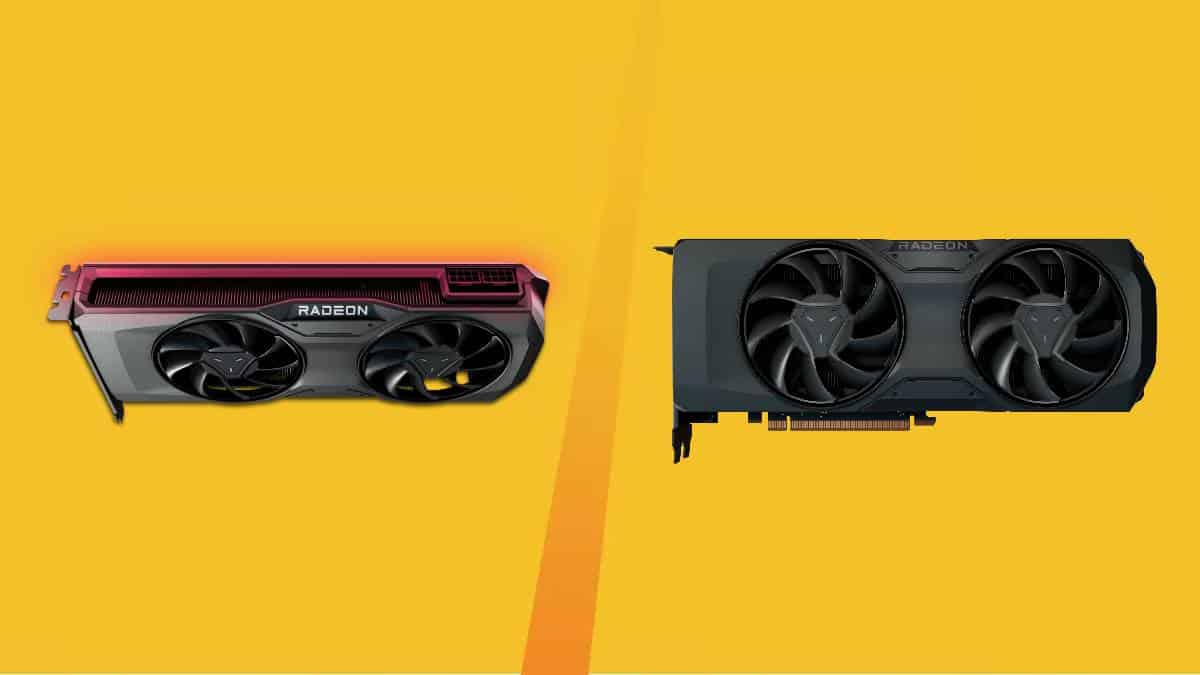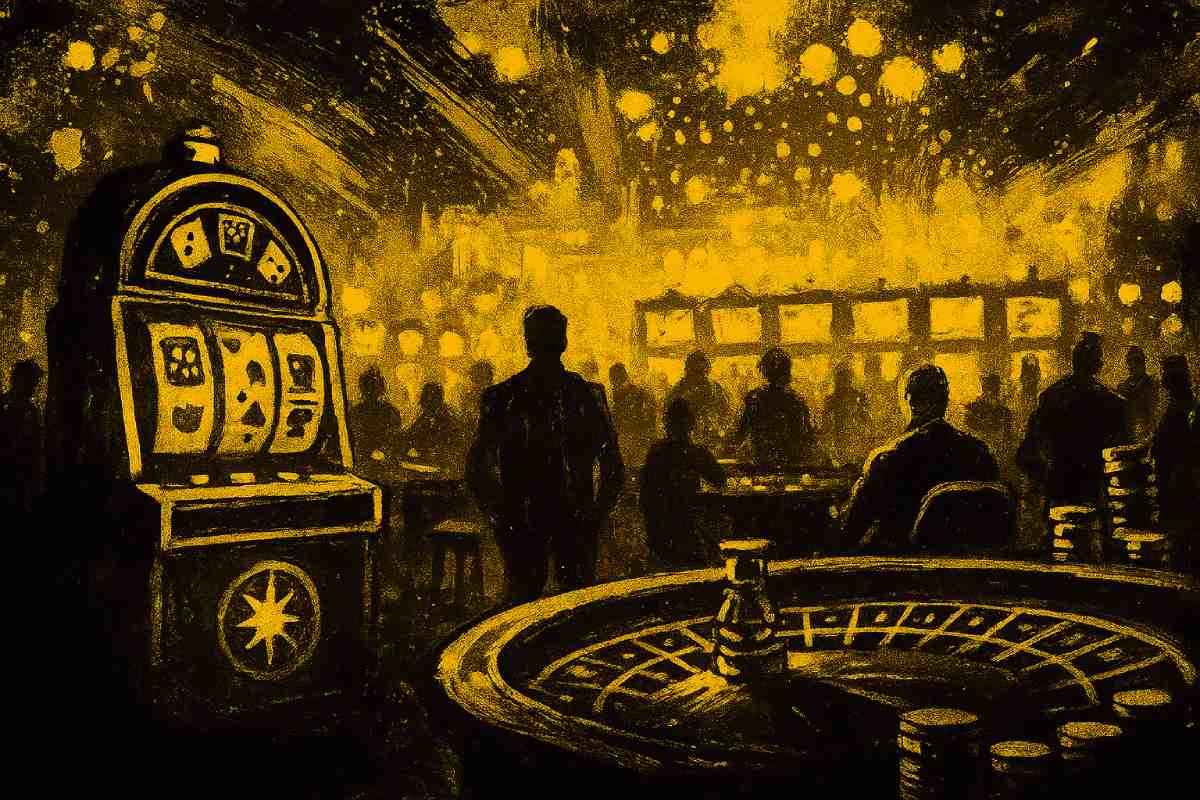You can trust VideoGamer. Our team of gaming experts spend hours testing and reviewing the latest games, to ensure you're reading the most comprehensive guide possible. Rest assured, all imagery and advice is unique and original. Check out how we test and review games here
We’re bringing you our comparison of the RX 7700 XT vs RX 7800 XT, so you can know which of these new cards makes the most sense for you.
With the release of the RX 7800 and 7700 XT it’s time to take a closer look at these popular mid-range cards, with good 1440p and even 4K performance. On the very same day, AMD is also releasing a pair of new software features – FSR 3.0 and Hyper-RX.
These are two cards that perform in a similar range and have a similar price. If you are having any difficulties picking between them that’s where we come in. We’ve got a comprehensive breakdown of the similarities and differences between the two of them, so you can get the best sense of which one is right for you. Let’s get into it.
AMD RX 7700 XT vs 7800 XT – architecture
The architecture is arguably the most impactful spec of them all. Each new generation of graphics cards brings with it a new architecture. This means that, as the RX 7700 XT and RX 7800 XT are from the same generation, their architecture is identical with both using the innovative RDNA 3.
AMD made improvements in almost all areas with RDNA 3 but there are two changes that are especially important. First of all, they changed the TSMC process nodes from 7nm to 5nm. This decrease in size does not lessen the processing power of these nodes and allows for more to be packed into a smaller area.
With RDNA 3 AMD also created the first GPU with a chiplet design. Together these changes have made RX 7000 cards up to 50% more energy efficient. The sheer computing power has been increased too with 2nd generation Raytracing cores and Infinity cache as well as updated AI acceleration. These are improvements over the 1st generation core and Infinity Cache found in RDNA 2.
AMD RX 7700 XT vs 7800 XT – specs comparison
| Specs | RX 7700 XT | RX 7800 XT |
| GPU Architecture | RDNA 3.0 | RDNA 3.0 |
| Cores | 3456 | 3840 |
| Base clock | 1900MHz | 1800MHz |
| Boost clock | 2544MHz | 2430MHz |
| Die Size | 346mm² | 346mm² |
| Memory | 12GB GDDR6 | 16GB GDDR6 |
| Bandwidth | 432GB/s | 624GB/s |
| TDP | 245W | 263W |
These two cards are directly next to one another in AMD’s roster, with the RX 7800 XT the level above in terms of performance. Knowing this, it’s no surprise to see that it’s the RX 7800 XT which boasts the superior specs.
The two specs that most clearly reveal this superior power level are VRAM and core count. VRAM is a video-specific kind of memory, while cores are responsible for crunching the calculations needed to render graphics. As the RX 7800 XT has more of both, 16GB of VRAM and 3840 cores vs 12GB and 3456 cores for the RX 7700, it is sure to have the better performance.
The RX 7700 has a higher clock speed, which should go some way to lessen the distance in performance between the two cards. The one area where the RX 7700 XT truly comes out on top is TDP. With a TDP of 245W versus 263W for the RX 7800 XT, the RX 7700 XT will consume less energy which can save you money in the long run. It also means that the best PSU for the RX 7700 XT can be less powerful than the best PSU for the RX 7800 XT.
AMD RX 7700 XT vs 7800 XT – performance
It’s all very well crunching numbers and studying specs table, but these are all a means to the end of understanding how a GPU will actually perform. Both cards are very capable at 1440p and proficient at a 4K resolution too, with the RX 7800 XT sure to produce faster frame rates at both.
Frame rates and resolutions are not only impacted by your GPU however. If you want to make sure you get the most out of either of these cards, you’ll want the best CPU for RX 7800 XT or the best CPU for RX 7700 XT.
AMD RX 7700 XT vs 7800 XT – price comparison
Price can all too easily make or break a GPU – a card could have the perfect performance but if you can’t afford it, you aren’t going to buy it. The good news is that AMD has kept the theme of the RX 7000 series and these cards undercut the direct competition from Nvidia’s RTX 40-series.
Predictably, the lower performance of the RX 7700 XT means that it comes with a lower price, starting at $449, while the RX 7800 XT will launch with an MSRP of $499. These prices aren’t a million miles apart but both do still represent a significant investment.
GIGABYTE Radeon RX 7800XT GAMING OC
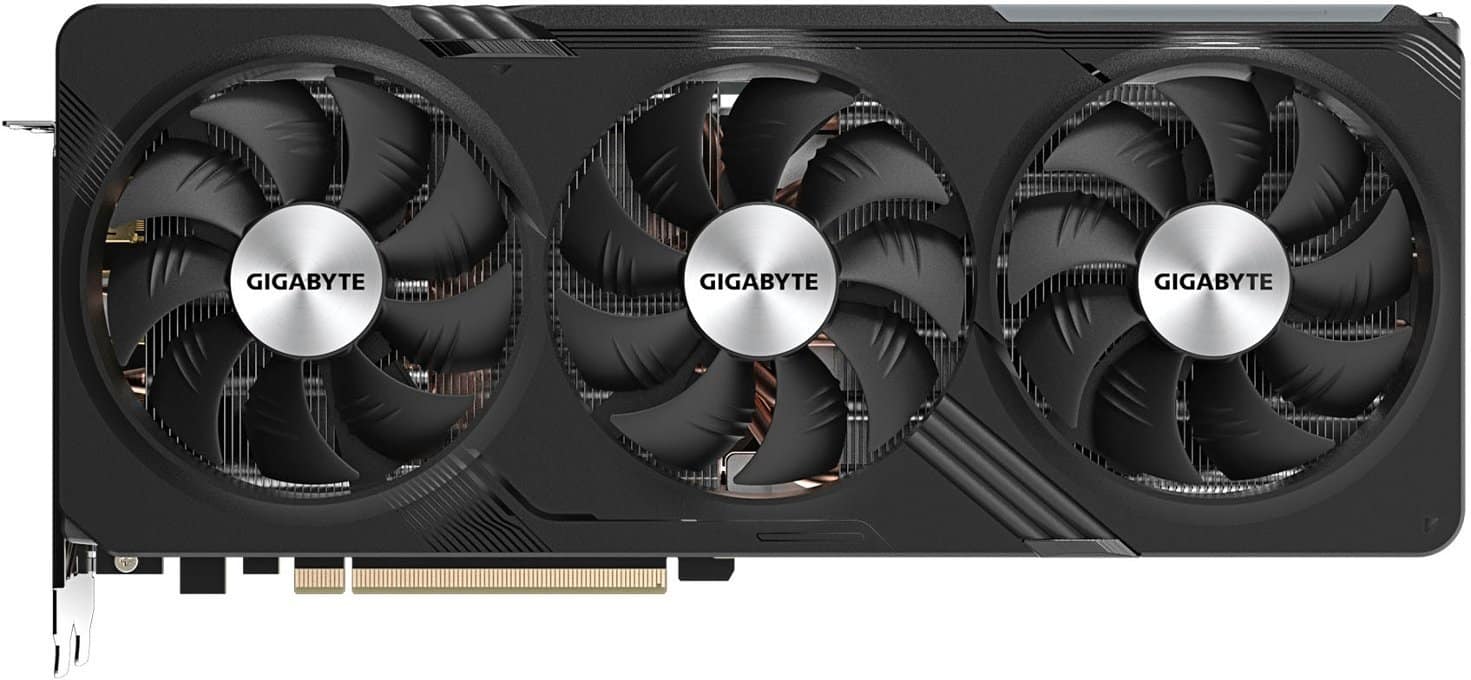
Base clock
2124 MHz
Boost clock
2430 MHz
VRAM
16GB GDDR6
Dimensions
302 x 130 x 56mm
Recommended PSU
700W
XFX SPEEDSTER MERC319 AMD Radeon RX 7800XT
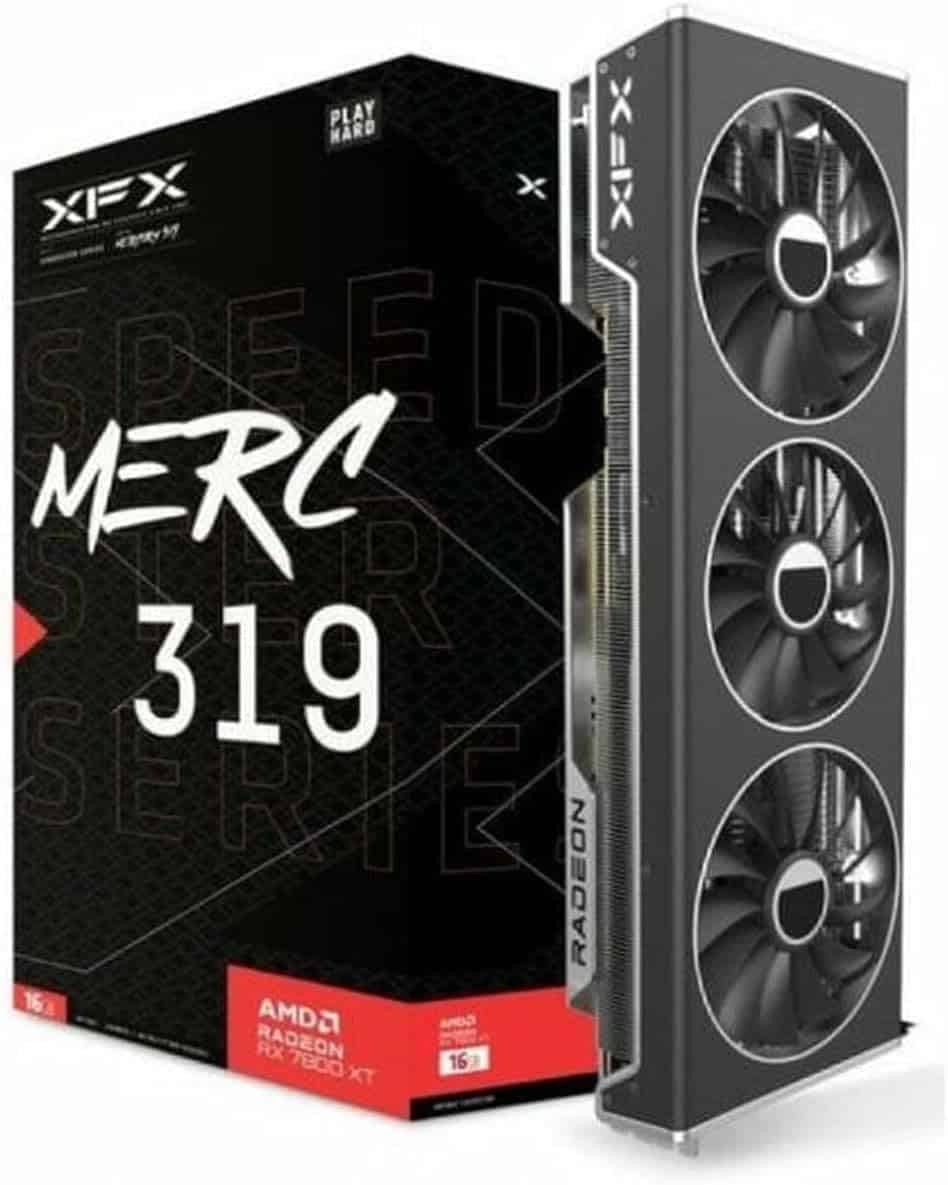
Base clock
1620 MHz
Boost clock
2565 MHz
VRAM
16GB GDDR6
Dimensions
335 x 129 x 50 mm
Recommended PSU
700
XFX SPEEDSTER QICK319 AMD Radeon RX 7800XT
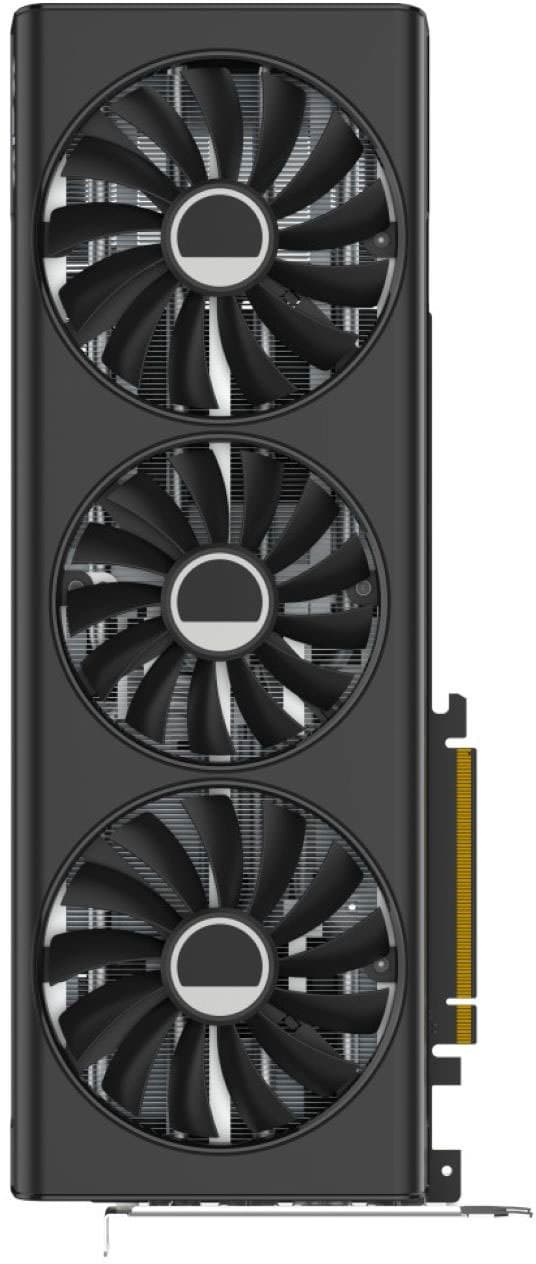
Base clock
1290 MHz
Boost clock
2430 MHz
VRAM
16GB GDDR6
Dimensions
335 x 130 x 50mm
Recommended PSU
700W
AMD RX 7700 XT vs 7800 XT – final word
Overall, both these new cards from AMD offer a good return on investment and should definitely be on your radar if you are looking to upgrade your GPU. If you are set on buying one of them, the most important factor is the price. If your budget stretches up the $499 dollars, in return you will get a higher performance, likely across the board.
If you don’t fancy splashing that extra bit of cash, the RX 7700 XT still offers a good performance all the way up to 4K. In the meantime, it could be worth checking out the best monitor for the RX 7700 XT or the best monitor for the RX 7800 XT to ensure all your components are working well together.
